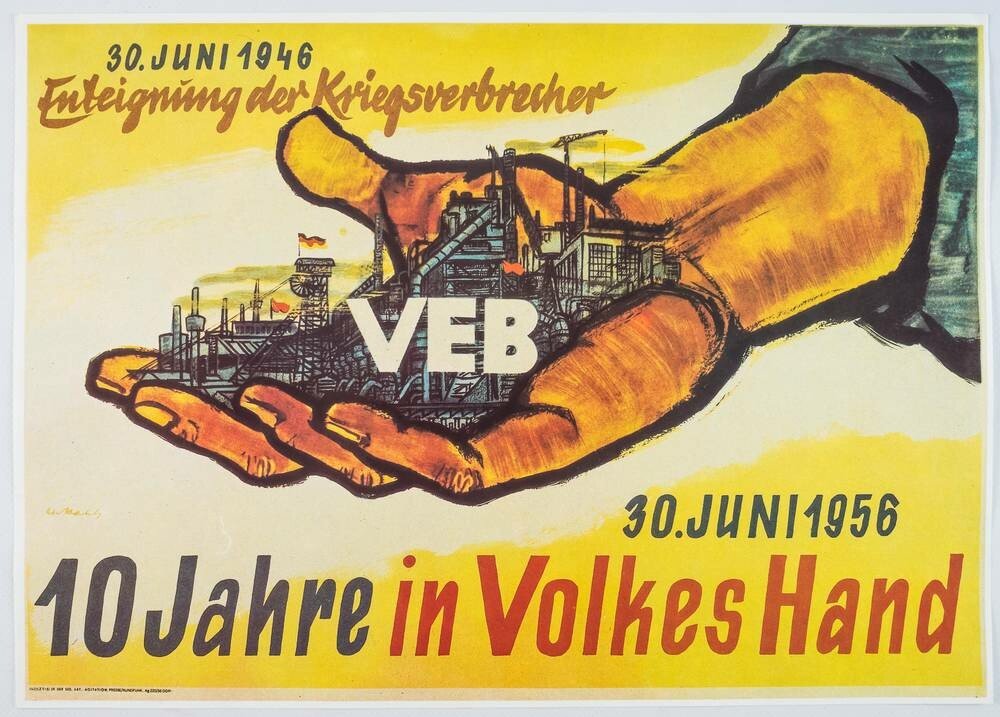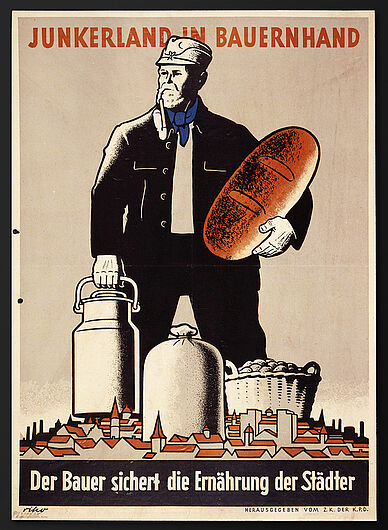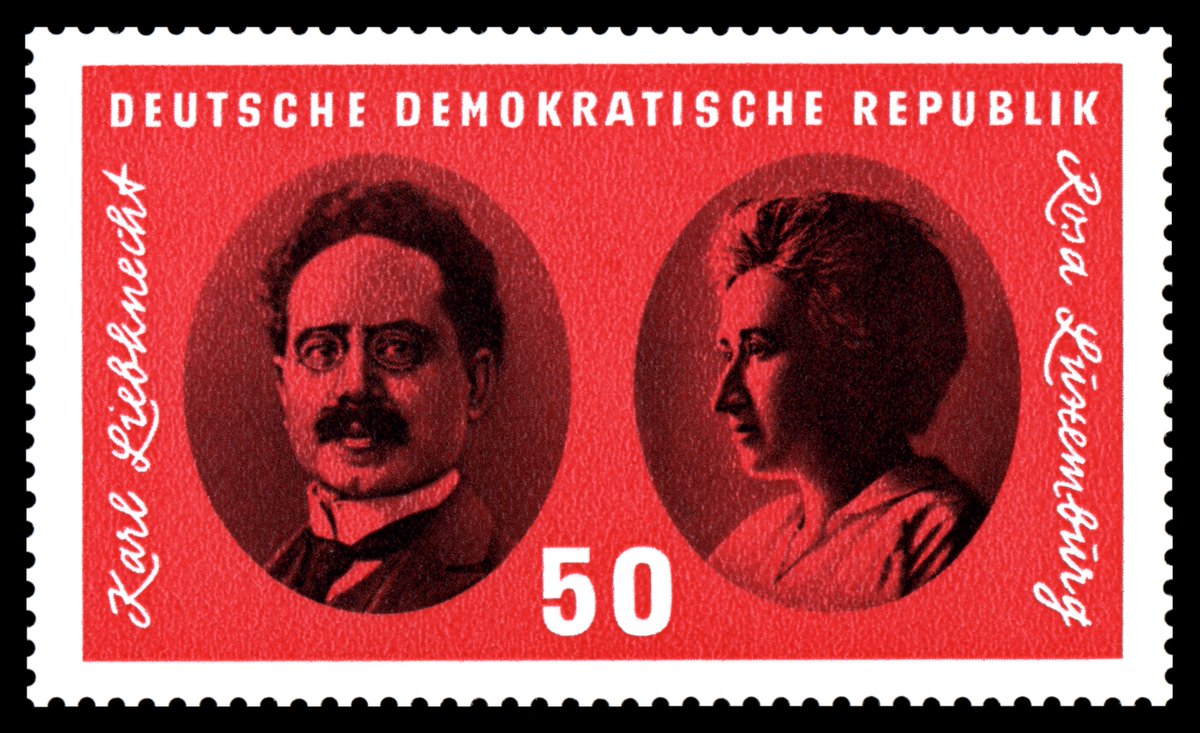
73 yrs ago #OTD, the German Democratic Republic was founded as a democratic, antifascist reaction to WW2 & the subsequent restoration of monopoly capitalism in West Germany.
Although it existed for only 40 yrs, the #DDR offers progressive movements a wealth of knowledge today.
1/
Although it existed for only 40 yrs, the #DDR offers progressive movements a wealth of knowledge today.
1/

Far from representing a separatist state and Soviet-style regime as the dominant narrative today would have it, the #DDR was founded in East Germany after the Western powers snuffed out all attempts to form a unified, neutral, parliamentary republic in post-war Germany.
2/
2/

In violation of the Potsdam Agreement, the capitalist powers occupying West Germany disregarded the stipulation that Germany was to be regarded as “a single economic entity” & they refused to break up the monopolies that financed Nazi rule, despite referenda on the issue.
3/
3/

In contrast, the anti-fascist forces and Soviet administration in East Germany redistributed land to the peasants, socialized key industries, and purged institutions of Nazi cadres. Egalitarian education, healthcare, & social systems were created to break down class barriers.
4/
4/

By 1949, the Western powers had created a separate currency for their occupation zones and implemented the Marshall Plan to make an anti-Soviet bulwark out of West Germany. They permitted conservative forces to establish a separatist state and encouraged its remilitarisation.
5/
5/

After the popular movement for a unified, neutral, parliamentary Germany had been suppressed in West Germany, the Soviets and German socialists & communists had to reassess the situation in East Germany. They founded the DDR five months after the West German state was formed.
6/
6/

The DDR was established in reaction to the separatist policies of the capitalist West. The new state was to defend the anti-fascist, democratic gains that had been fought for in East Germany since 1945 and to continue the struggle for a unified, neutral Germany.
7/
7/

It was not until 1952 that the construction of socialism began in the DDR. The workers' & peasants' state shaped its own policies: small businesses continued to operate over the next decades & the land remained the property of the peasants who joined agricultural cooperatives.
8/
8/

The DDR represented a new Germany. With public ownership of the means of production as its foundation, the country developed into a powerful & efficient industrial state that used its economic surplus for the benefit of its citizens & guaranteed them a life of social security.
9/
9/

On the world stage, East Germany pursued peace while exercising immense political and material solidarity with countries and movements fighting for their independence in Africa, Asia, & Latin America.
It remains the only modern German state not to have deployed troops abroad.
10/
It remains the only modern German state not to have deployed troops abroad.
10/

Thus, despite (or indeed because of) its contradictions, shortcomings, and ultimate dissolution, the #DDR remains a frame of reference for those struggling towards a better society, one that is organised for and by the working people.
11/
11/

What can we learn from the #DDR’s alternative economic practices? What did socialist democracy look like? What contradictions arose during the everyday application of a planned economy? What lessons can we draw from the DDR’s demise in the late 1980s?
12/
12/

These are the questions we have set out to explore. In our first publication, we sketch out the character and areas of DDR society.
In our second Study, coming out in November, we examine the transformation of health care in East Germany. For more: ifddr.org/en/home/
13/13
In our second Study, coming out in November, we examine the transformation of health care in East Germany. For more: ifddr.org/en/home/
13/13
We also outlined the events building up to the division of post-war Germany and the founding of the DDR in an article earlier this year. In the text, we explore the popular anti-capitalist, anti-militarism movement & its suppression in West Germany:
ifddr.org/en/neutral-dem…
ifddr.org/en/neutral-dem…
• • •
Missing some Tweet in this thread? You can try to
force a refresh









